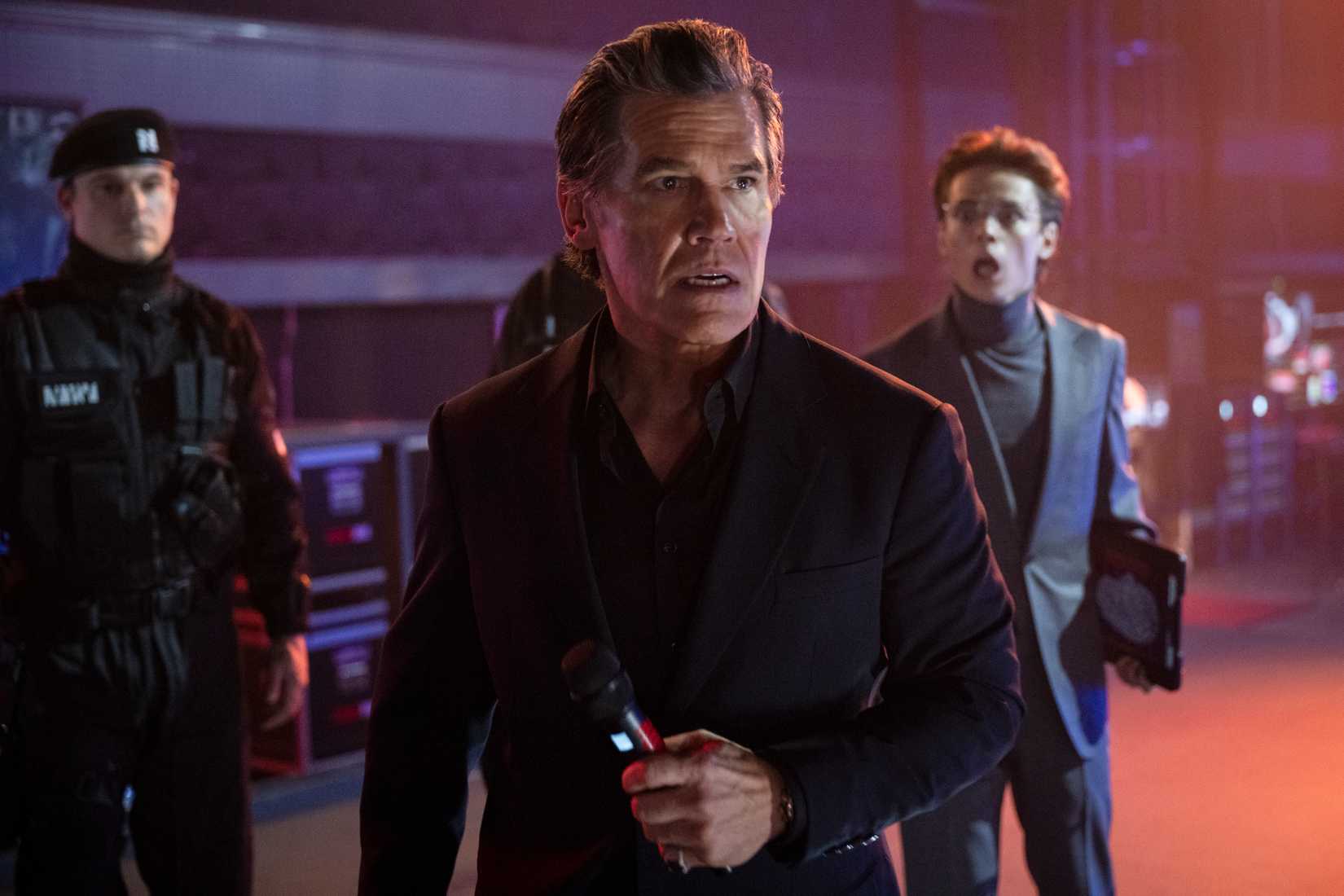Warning: Spoilers ahead for both Stephen King’s The Running Man & Edgar Wright’s 2025 adaptation
Edgar Wright’s The Running Man is a pretty faithful adaptation of Stephen King’s 1982 novel of the same name (published under his pseudonym, Richard Bachman). It hits all the main beats of the original story, preferring to tweak more than outright change. But the ending is the most significant exception.
In interviews ahead of his film’s release, Wright admitted he knew from the beginning that King’s ending had to change, and it’s not hard to see why. The book is propulsive and entertaining, but also very cynical about protagonist Ben Richards’ chances of surviving this deadly game show, and his story gets progressively darker. By the end, he’s offered a chance to replace McCone as lead hunter, but is also informed his wife and daughter were killed days ago, in an act of random violence. He ultimately chooses to fly the plane he’s on into the Games Network building, killing himself, Killian, and untold others.
Not exactly a Hollywood ending, is it? It may have been fascinating as a way to conclude the new adaptation, but it wouldn’t have sent audiences out on an action-blockbuster high. For Wright and star Glen Powell, who were aiming to create some big-screen fun, changing the book was absolutely the right move.
The Running Man‘s new ending just swings way too far in the opposite direction.
The Running Man Gives Itself The Perfect Excuse To Deviate From King’s Book
If you haven’t read the book but found my summary of its ending familiar, that’s because Wright and co-writer Michael Bacall cleverly make it part of their movie. In keeping with the commentary on today’s reality TV, the game show is shown to chase certain narratives to deliver on the entertainment audiences expect, even manufacturing footage of its contestants to do it. And Josh Brolin’s version of Killian is essentially scripting things the way King wrote them.
Ideally, he wants Powell’s Richards to wipe out McCone and his hunters and fly triumphantly to safety, where he’ll become the star of his own spinoff show, Hunter Number Six. Killian even tells him that McCone killed his family to provide the necessary motivation. But if he doesn’t play along, the producer’s alternate ending would make it seem like Richards tried to fly his plane into the Network building, giving them no choice but to blow it out of the sky.
This approach is smart for multiple reasons. Because the movie sticks close to the plot of the book, the story is naturally building to the way King finishes it; tacking on a new, brighter conclusion without properly seeding it would feel sudden and unsatisfying. This way, the movie arcs toward King’s ending because it’s the Network’s ending, giving our hero a chance to subvert it without leaving us feeling cheated.
The New Ending Is Far Too Happy For This Story (& Cheats To Get There)
Ultimately, though, Wright’s The Running Man does too much. The video “debunking” Richards’ death is a nice way to disrupt the official narrative, leave things on a more hopeful note, and set up that the Richards Lives resistance has continued to grow regardless. There’s a version of the movie that ends there – but that’s perhaps a more muted high than the filmmakers wanted to leave us with.
Two scenes follow: one confirming Richards’ wife and daughter are alive and showing his reunion with them; and another of an audience revolt at the next season’s taping of The Running Man, during which Richards reappears to shoot Killian. Either of these, on their own, are probably satisfying. Both are overkill. The script may have given itself an opening to subvert King’s ending, but it still doesn’t feel right for this movie to end this happily.
Firstly, it’s a cheat for Richards to survive the plane crash and for the Network to be seemingly unaware, given the control they’ve exerted so far. It would be more believable that he was either killed or offered a public death in exchange for a quiet reunion with his family, and that (in either scenario) this still failed to quash the revolution sparked by his performance on the show. And, if he did somehow escape, it’s another cheat to suggest the Network wouldn’t watch his wife and kid, assuming that’s where he’d eventually reappear.
You can watch The Running Man without consciously thinking of these things. But odds are you’ll feel their impact regardless.
Secondly, the current ending leaves the film thematically toothless. It would have been more impactful for the unruly Running Man audience to tear the set (and Killian) to pieces in Richards’ name, whether he actually died in the crash or is gifted the tearful reunion with his family. If he is the kind of action movie superhero who can overcome all the odds, save his family, and take down Killian himself, then the uprising he’s inspired has no real purpose other than to cheer on his victory.
We’re meant to feel like the viewing public has finally woken up, and are turning against the scourge of violent, numbing entertainment. But it ends up feeling more like Killian was right, and Hunter Number Six would’ve made all this anger go away. They’re less upset about being oppressed than seeing their favorite character killed off too soon. This ending is a win for Richards, perhaps, but not really for the rest of society, and the movie needed to aim for more than that to truly be meaningful.
This story originally appeared on Screenrant


